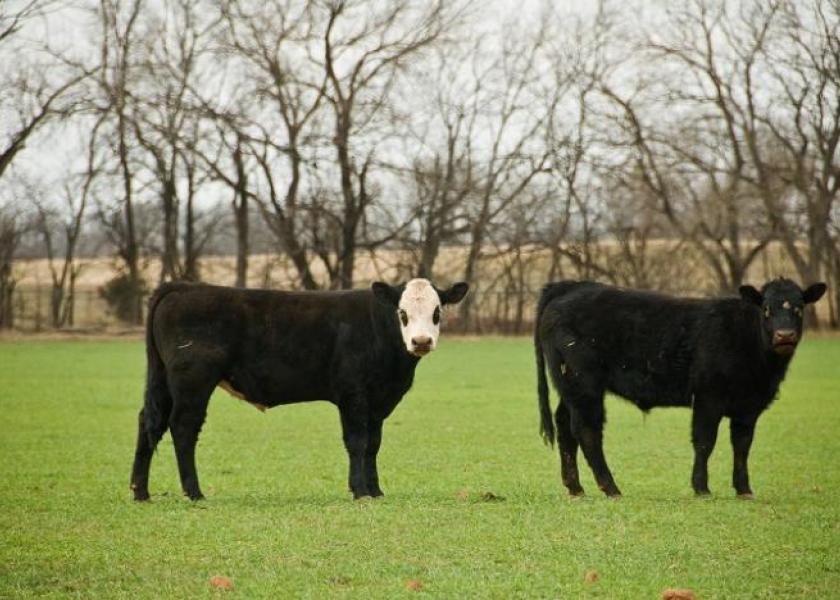Control and Prevention of Wheat Pasture Bloat

Wheat and other small grain pastures have been short due to lack of rain this winter, but recent rains have really given them a boost. When growing conditions improve with warmer temperatures and rain, forage growth comes on rapidly. Rapidly growing small grain forage can lead to bloat of grazing cattle. The rapid onset of wheat pasture bloat and the short time window from the occurrence of initial symptoms and death may be the scariest part of this disease.
Bloat can be an issue on wheat pasture and other small grain pastures, but also legume pastures such as white and Persian clover or alfalfa and can impact both calves or mature cows. Bloat can occur as soon as 1 to 3 hours after cattle have been put on wheat pasture. Death losses in bloat provocative pastures have been reported to be as high as 15 to 20% of cattle on a pasture. Lost production from subclinical bloat may actually be greater than producers realize, so prevention is a key to profitable wheat grazing.
There are several grazing management alternatives that can be used to decrease the incidence of bloat. Because this is a bigger issue for cattle that are able to consume large amounts of these high-quality forages in a short period of time, over stocking cattle on pastures to a point that forage intake is limited can decrease bloat.
Alternatively, where rotational grazing is used, cattle can be placed on pastures after the forages have accumulated sufficient growth and maturity to increase the fiber content of the forages can also limit bloat.
Research conducted in Oklahoma and New Mexico indicates that the ionophore monensin decreases the incidence and severity of bloat for calves grazing wheat pasture by 40 to 60%, decreasing the lethality and improving the ability to respond to the problem. Even though monensin decreases frothy bloat on pastures, it does not eliminate the issue altogether.
Poloxalene (Bloatguard) is a surfactant and works to disrupt the froth. Poloxalene has been proven to be a more effective remedy for frothy bloat than monensin, but does not have the performance enhancing benefits of monensin. If poloxalene is fed only during the period that forages are most bloat provocative then the total cost of bloat control can be covered by the prevention of the loss of a single animal.
As a management strategy, producers should consider using monensin until there is a confirmed bloat issue then switching to poloxalene once cattle show clinical signs of bloat.
Bloat can be serious issue with rapidly growing forages in the early spring. Keep an eye on cattle and be ready to react rapidly or death losses can quickly build up.







